Blog
What Are Recycling Dos and Don’ts in Ontario – Fixing A Waste Problem
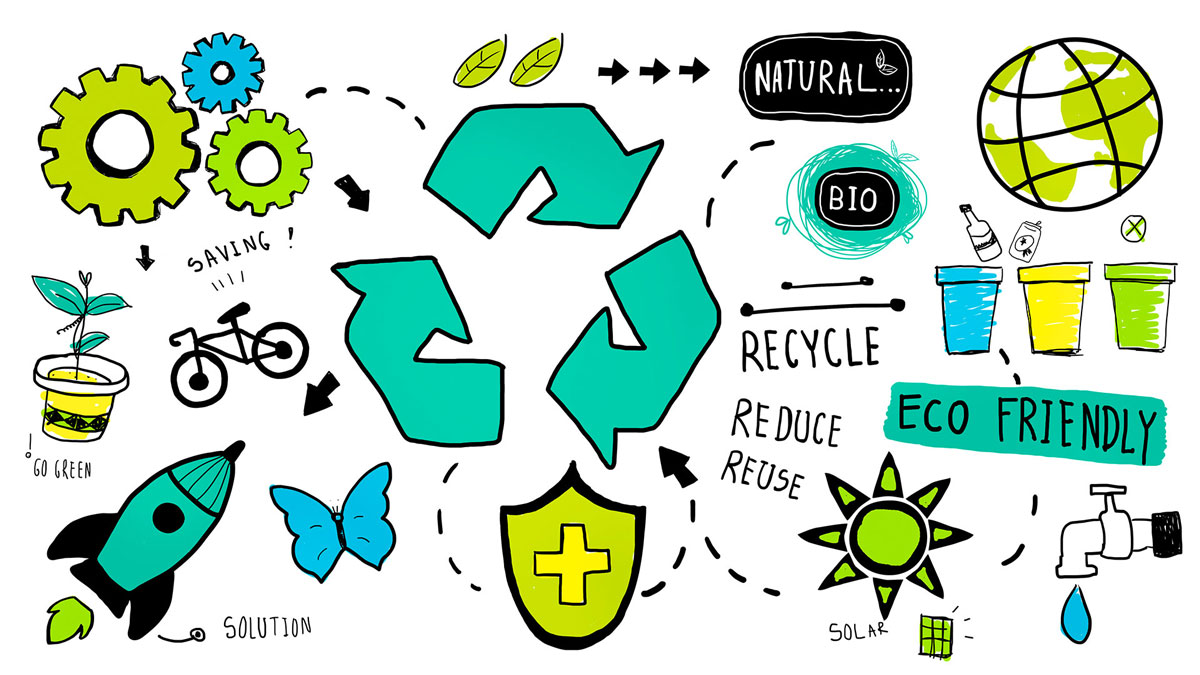
Recycle more. Easily said. Tougher done. Recycling’s a great move for our environment and economy. It makes Canada millions every year. Revenues will only increase in the years ahead.
Recycling isn’t perfect in Toronto, Ontario, nor Canada. A number of issues persist. From contamination to underdeveloped markets, it’s not always clear to consumers what the expectation is on what’s recycling and what isn’t.
To do our part, this article is your guide to recycling dos and don’ts in Ontario. In waste management, nothing’s more important than eco-friendly garbage collection and processing. Here’s what you need to know.
Read more: What Are Recycling Dos and Don’ts in Ontario – Fixing A Waste Problem
How is Coronavirus Affecting Recycling and Waste Disposal in Canada – read here!
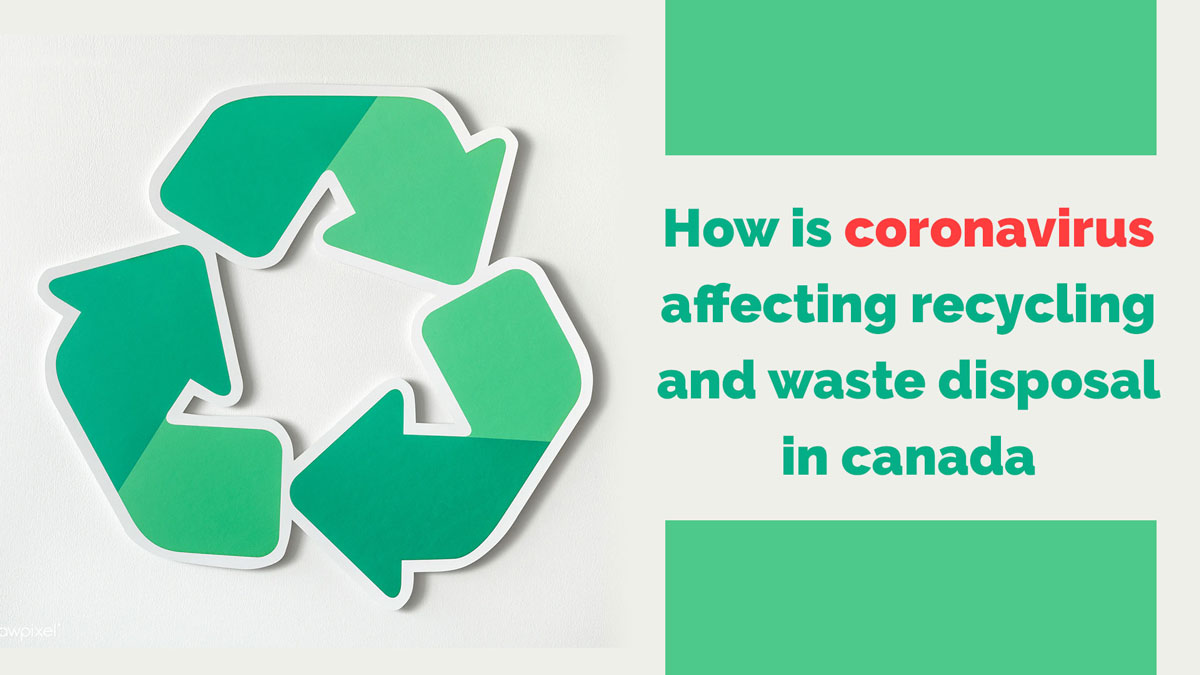
Coronavirus is impacting virtually every industry. Every business category is either seeing its numbers fall in one way or another, or sizeable disruptions to business. Waste disposal and recycling are not excluded.
Is coronavirus a threat to recycling? How are waste management companies handling coronavirus waste? Could cross-contamination make the spread of the virus worse? How expensive could a disruption to waste management from coronavirus be?
These are all questions that deserve answers. While the coronavirus continues to worsen in countries from Canada to the other side of the Earth, it’s tough to predict the full extent of consequences. Here’s our take on where the relationship between recycling, waste, and the coronavirus are right now.
Read more: How is Coronavirus Affecting Recycling and Waste Disposal in Canada – read here!
How Does a Mini Bin Rental Work – Tips, Tricks, and Insights
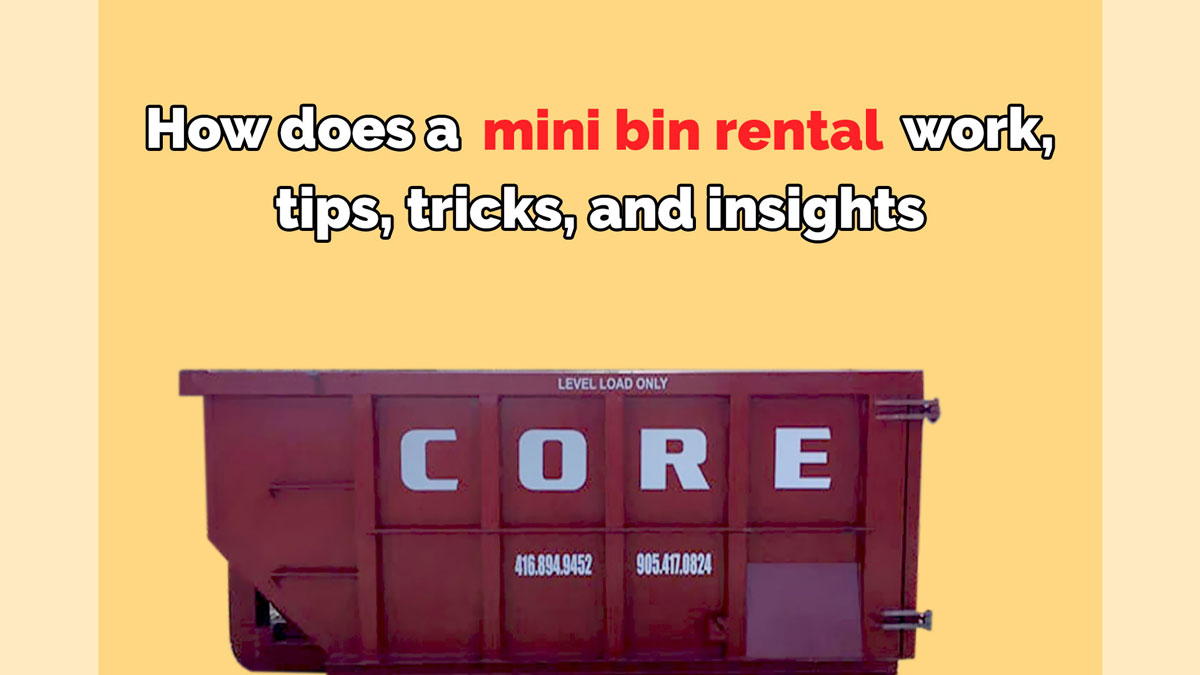
Waste disposal and recycling should be easy. Every business needs a reliable way to manage waste. A garbage bin rental, dumpster rental, or mini bin rental is the perfect disposal and recycling solution.
Who rents a mini bin or dumpster?
Mini bin and dumpster rentals are arranged by many different people. They’re convenient, customizable in size, and cost-effective. Here are some of the common customers we have renting mini bins and dumpsters.
Homeowners renovating.
Roofing contractors.
Construction contractors.
Landscapers.
Demolition contractors.
Small business owners.
Corporate office managers.
Industrial site managers.
For office cleanouts.
For garage cleanouts.
For seasonal cleanouts.
Read more: How Does a Mini Bin Rental Work – Tips, Tricks, and Insights
Where Can I Throw Out My Garbage in Toronto – read here!

The end of your driveway. Simple. An easy answer to the question, where can I throw out my garbage – if only.
If you have electronics, hazardous waste, construction materials, a whole lot of garbage, mattresses, or furniture, municipal waste management isn’t picking it up.
There are a lot of situations where it might not be clear where you can put your garbage in Toronto.
Let’s clear up any confusion. Here is a breakdown of how waste pickup works in Toronto and what options are available to you.
Read more: Where Can I Throw Out My Garbage in Toronto – read here!
Are Bioplastics A Waste Problem in Waiting or the Future of Plastic Recycling in Toronto – see here!
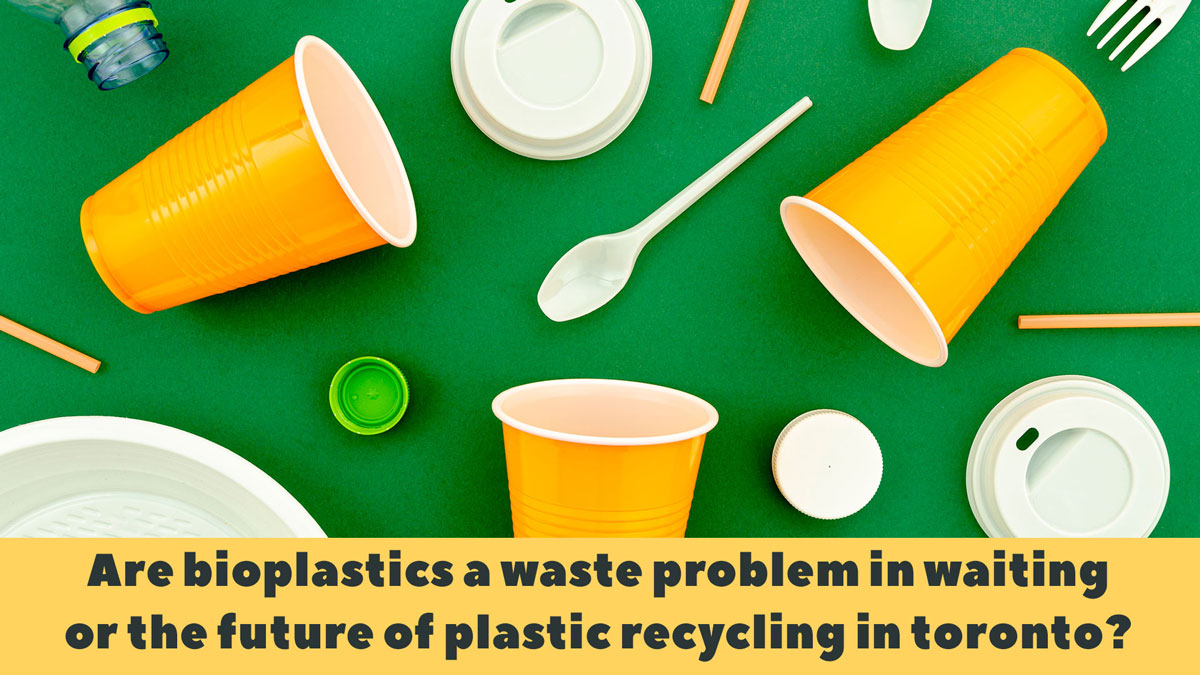
Bioplastics are highly praised. They’re compostable. They’re plant-based. They’re the plastic savior!
Unfortunately, the truth about bioplastics is very different from how they’re marketed. Though greener, there’s a lot to bioplastics that are problematic. They aren’t all biodegradable. They aren’t all biobased. Bioplastics may very well be a new type of waste problem that we, as a society, aren’t ready to deal with.
Facts about how we use in Canada
Canada recycles only 9 percent of its plastic waste.
89 percent of our plastic waste is put into a landfill or incinerated.
Plastic incineration creates greenhouse gas emissions. The amount is likely to reach 1.2 gigatons annually by 2030.
There’s evidence showing how plastic ends up in our environment. This harms whales, turtles, seabirds, and all sorts of wildlife.
What is Topsoil – Benefits, Uses, and Advantages
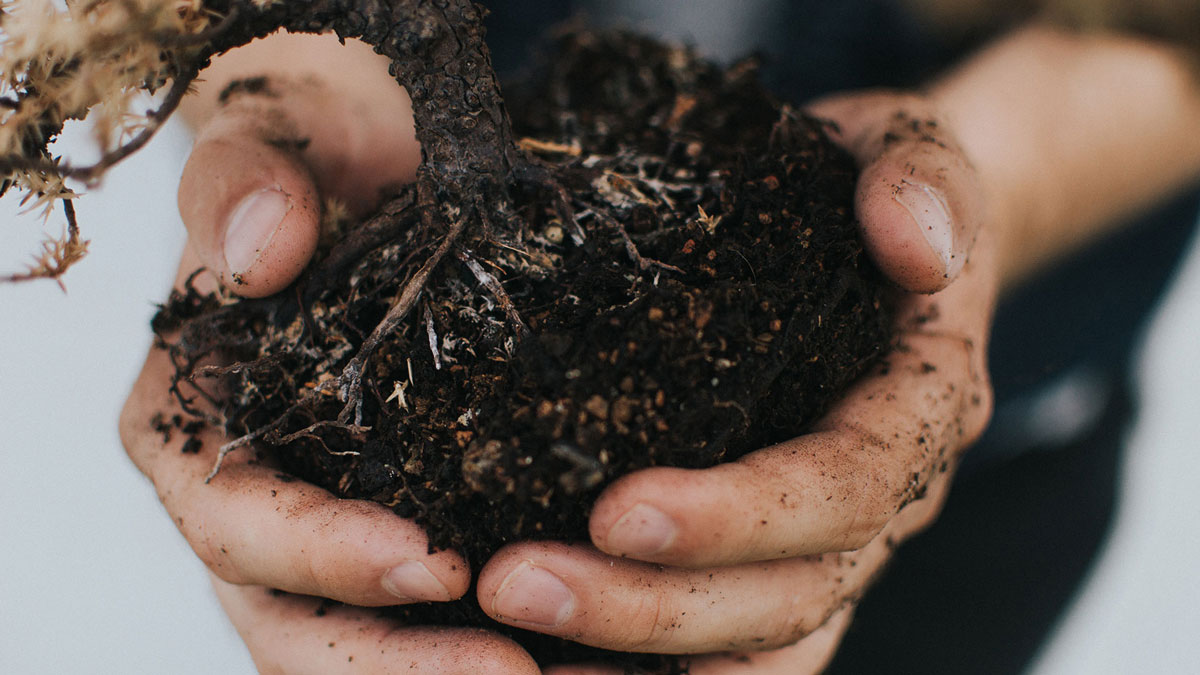
Topsoil. You may have heard the term before. It’s not just regular soil. Topsoil’s better. For landscaping or gardening, topsoil is a great buy. Here’s why.
What is topsoil?
Topsoil is the top layer of soil stripped during construction projects. It is usually composed of ingredients like clay, silt, sand, and other organic matter. It is taken from the top 12 inches of ground.
Topsoil takes a long time to form. One inch of topsoil can take 100 years to form. It’s natural lifecycles embodied in topsoil.
What is topsoil used for?
Topsoil has many uses. It can be used to grade. If it’s a suitable quality, there’s topsoil for gardening.
How Do We Lower the Rising Costs of Recycling and Waste Collection in the GTA
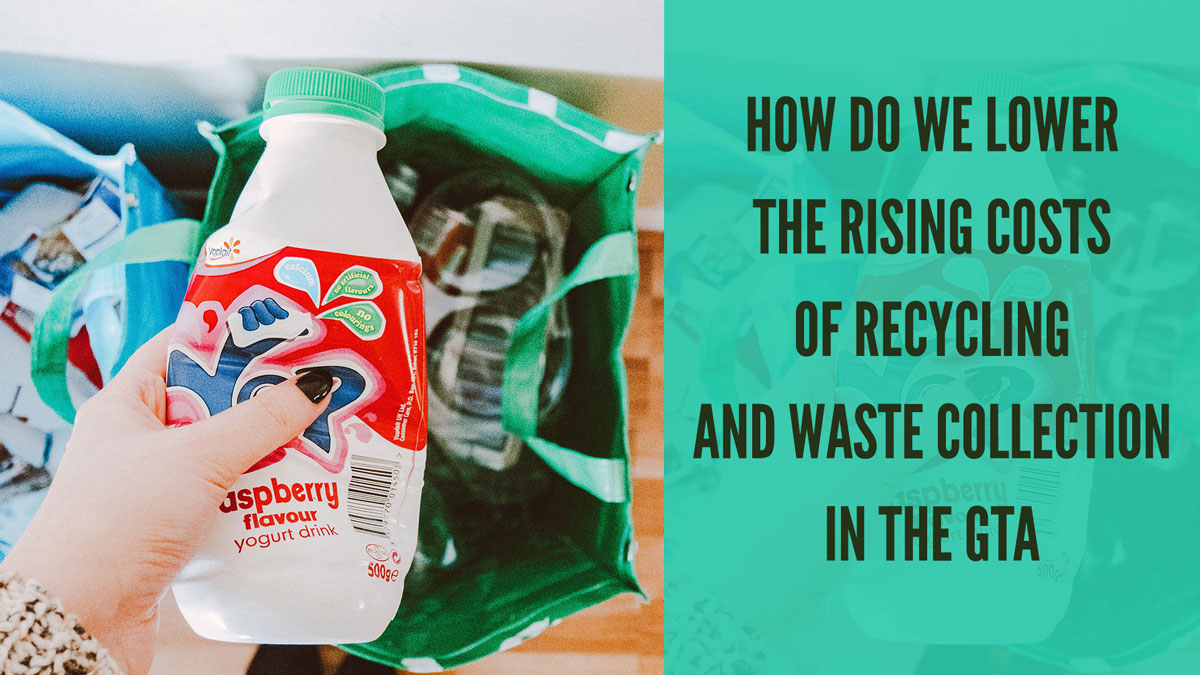
“Help the environment. Recycle.” We’re told this. The message is in our schools, at work, in newspapers, and all over.
‘Recycle’ sounds nice. As a social concept, it makes sense. There’s a whole business behind recycling though.
The reality is that there’s a cost to recycling and waste collection in the GTA. The person who collects the waste must be paid. The facilities that sort the waste can only do so when rent, equipment, and utilities are covered.
If Toronto is to do its part and reduce waste, this means cost efficiencies will have to happen. Here’s the reality of the rising costs of recycling in our city.
Read more: How Do We Lower the Rising Costs of Recycling and Waste Collection in the GTA
What Is Not Recycling in Toronto – See the List!
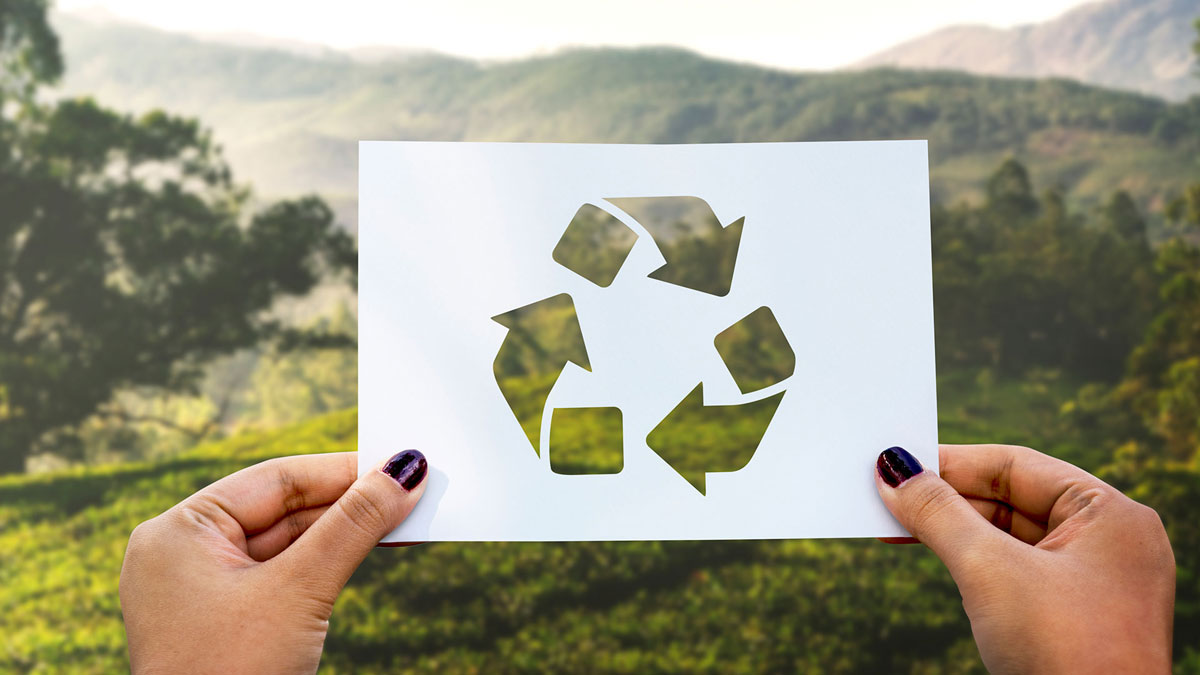
Recycling is an evolving industry in Toronto. It has become so much easier to do. What wasn’t recyclable now is. More facilities are being built. More items are being accepted. Even with all this development, there are still materials that cannot be recycled.
Virtually every home and business are registered in Toronto’s blue bin program. This recycling program’s designed to collect recyclables. Unfortunately, contamination exists.
Cross-contamination is also a serious concern. When we include what is not recyclable in a collection of materials that is, it contaminates the whole batch. This reduces the value of our recyclables or renders them worthless.
How to be a better recycler starts with knowing what is and is not recyclable. When we recycle correctly, it saves money and is efficient. We also do right by our environment. Here’s what isn’t recycling in Toronto.
Styrofoam
Styrofoam is made from a type of plastic that is difficult to recycle. Due to the difficulty, a lot of cities won’t even bother with it. It is for this reason that styrofoam is not recyclable in Toronto.
What Can You Throw Away in a Dumpster or Mini Bin Rental – read here!
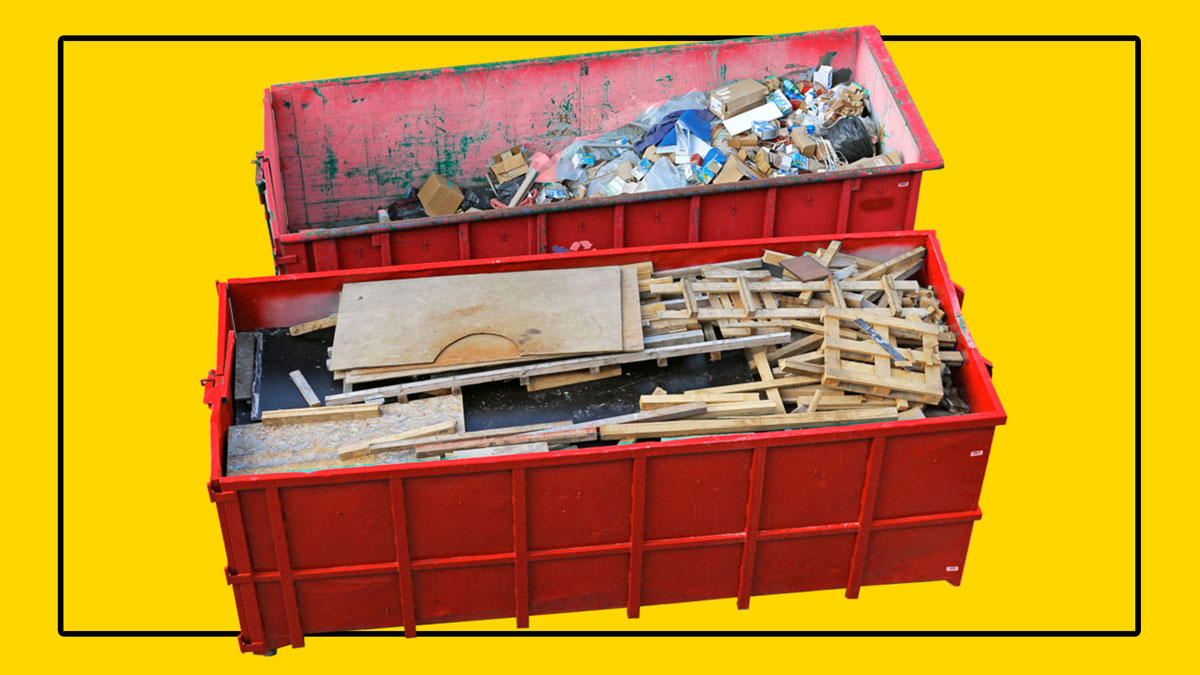
Companies rent dumpsters to give them a place to put their waste. Construction contractors employ dumpsters to catch a variety of materials. They help to keep their job site safe.
You also have offices that rent dumpsters. They use them to manage the large amounts of office waste generated every day.
You will also find dumpsters located behind grocery stores, hotels, medical offices, and restaurants. So many different types of businesses rely on dumpster and mini bin rentals.
Where do you rent a dumpster from?
Dumpster rentals and mini bin rentals come from waste disposal companies. You make arrangements to rent a dumpster in a specific size and length. Your waste disposal company arrives to drop off the dumpster. Then they pick it up at a specified pick-up time.
Read more: What Can You Throw Away in a Dumpster or Mini Bin Rental – read here!
Tips on How to Increase Waste Management Efficiency for a Small Business or Corporate Office
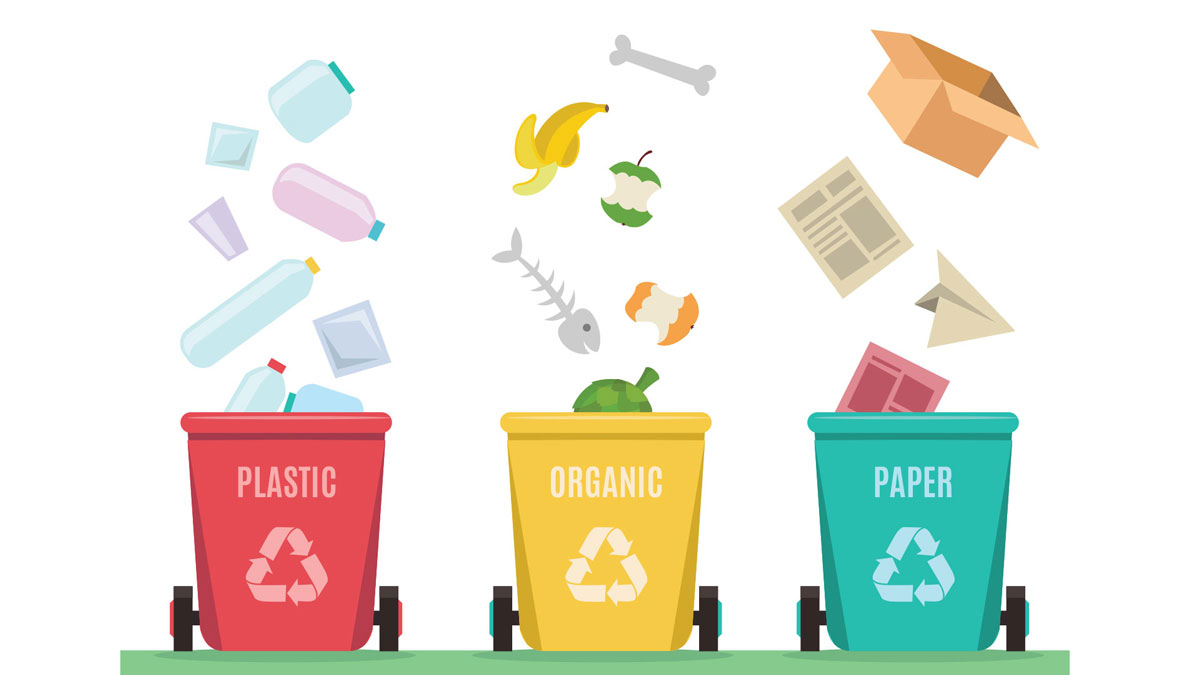
Every business creates waste. Even companies who plant trees create waste products in their efforts. Your average Toronto corporate office generally fixates on other priorities above management of their waste. That doesn’t mean it isn’t important.
A lot of offices in Toronto want ways to reduce waste, increase recycling, and manage the waste they have to create. As a waste disposal company, there are two pieces of advice we give on this – properly dispose of the waste you’re already creating and use alternatives to reduce the waste created.
Where are there opportunities to purpose and reuse your office business waste?
An office that wants to be smart about their waste needs relationships. A lot of larger multi-national corporations launch initiatives based off these relationships that focus on recycling and/or repurposing waste.
Is Canada Good At Waste Disposal and Recycling – See the Facts
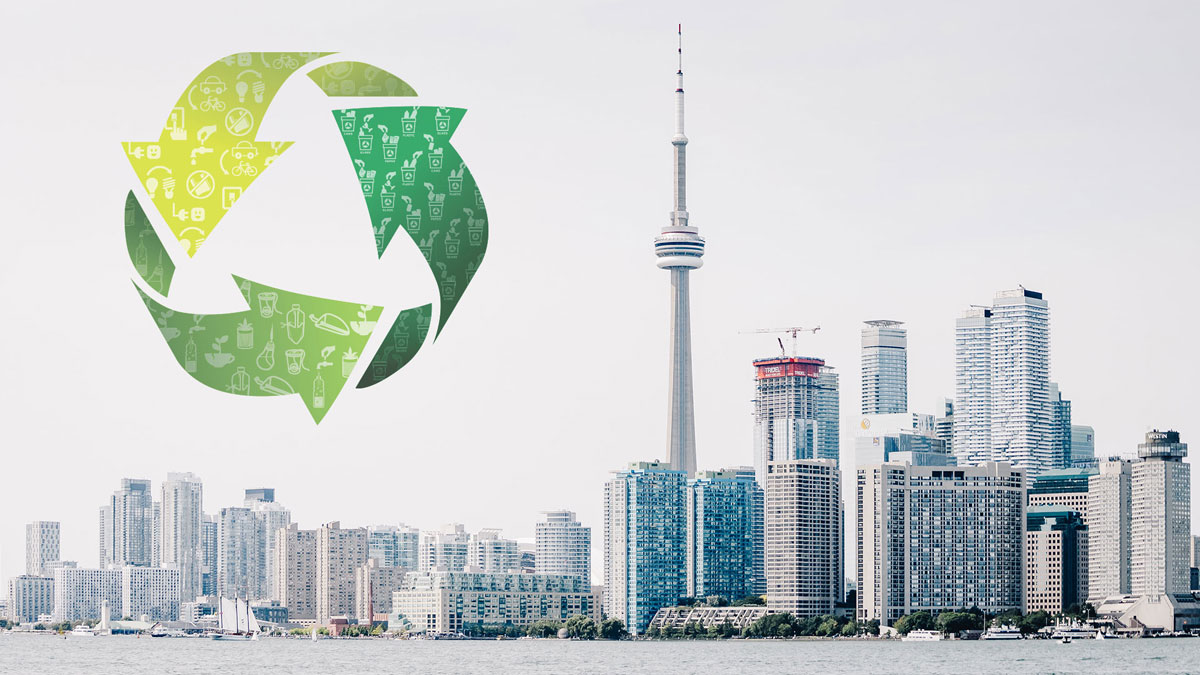
Canada has a waste management record of mixed results. A lot of analyses comparing Canada’s efforts to other countries regularly rank us as having one of the worst waste management records among developed nations.
Is there room for improvement – absolutely. In an effort to give a full glimpse of the waste management problem in Canada, we’ve assembled the data and outline the opportunities that exist.
Every year, we send millions of tonnes of waste to our landfills. This is expensive, increases demands on our waste disposal facilities, and is a missed opportunity when we calculate the value of minerals and recyclables that aren’t being retrieved from our waste stream.
Read more: Is Canada Good At Waste Disposal and Recycling – See the Facts
What More Can We Be Doing to Recycle Construction Waste in the GTA – read here!
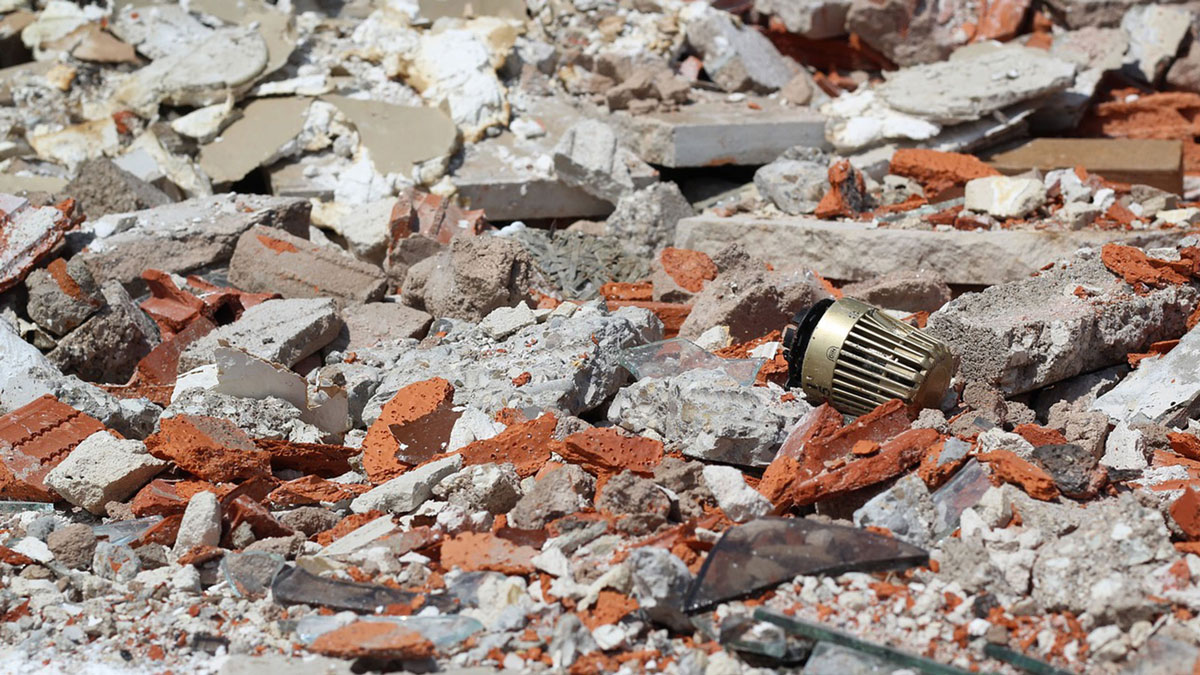
A massive category of waste management and waste disposal services in Toronto are construction-produced materials. Seemingly every day, we send more building waste to landfills. When the majority of this material is reusable or recyclable, it’s shocking how much receive the landfill treatment.
As we erect 100s of new units, condo buildings, apartments, and homes, construction creates waste. There is no avoiding it. A lot of this comes from demolition which on average produces over 155 pounds of waste per square foot. This adds up very quickly. When construction waste isn’t managed properly, it contributes to three effects.
The overflowing of Ontario landfills.
Deteriorating ecosystems.
A loss of valuable reusable or recyclable materials.
Read more: What More Can We Be Doing to Recycle Construction Waste in the GTA – read here!
Questions to Ask Before Hiring an Excavation, Demolition, or Bobcat Contractor
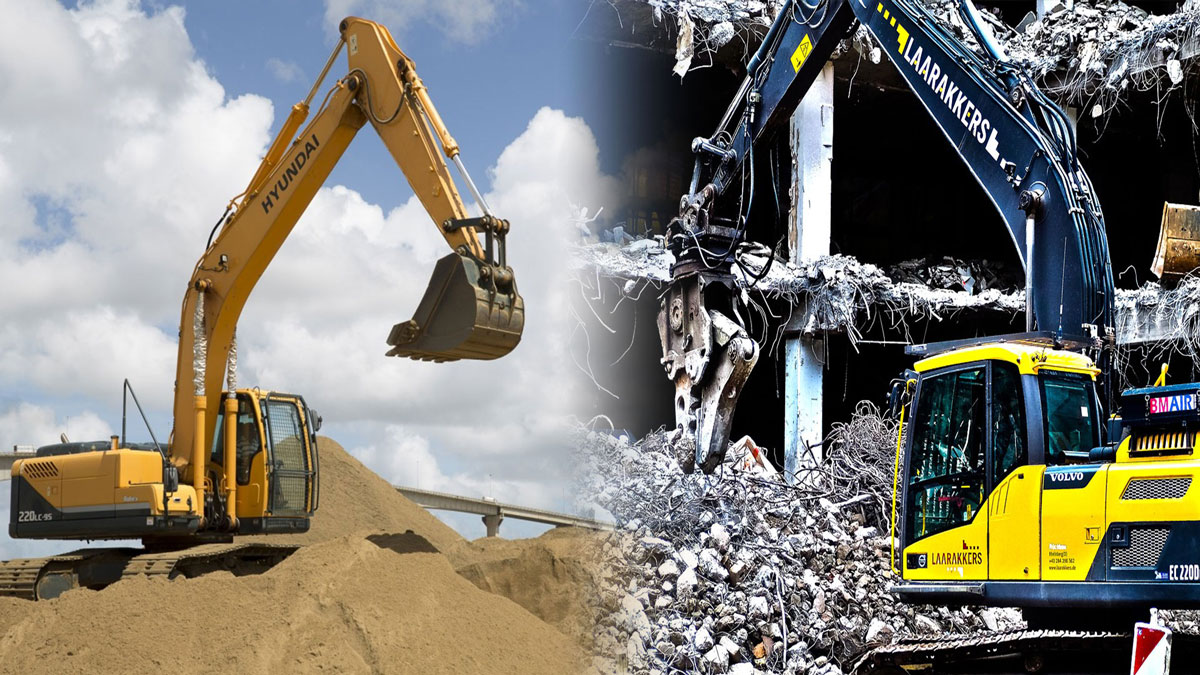
Demolition and excavation contractors are very important in the Toronto recycling industry. Development wouldn’t be able to continue without the use of contractors in excavations, bobcat services, and demolition.
When you need to tear a building down to make room for a new construction, you call demolition contractors. When you need a site cleared so that you can move forward with redevelopment, excavators and bobcat operators come in handy.
The obstacles in front of your construction are what Toronto contractors like us specialize in removing. When hiring an excavation, demolition, or bobcat contractor, there are no doubt questions you want answered. What your prospective contractor says in response will communicate a lot regarding how they do business and whether they’re worth hiring.
Read more: Questions to Ask Before Hiring an Excavation, Demolition, or Bobcat Contractor
Where You Are Most Likely to Find Asbestos, Mold, and Water Damage in a Demolition
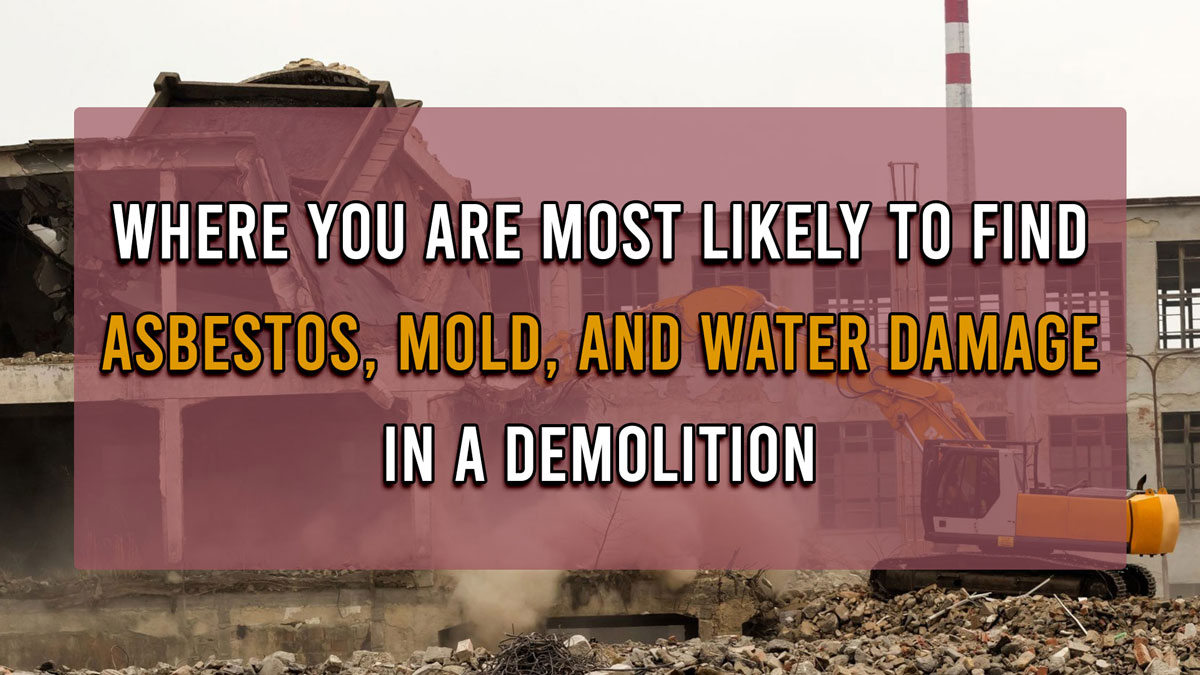
Completing demolitions and deconstructions, you occasionally find materials that contain asbestos, mold, or that are plagued with water damage. These construction materials usually aren’t salvageable and need to be disposed of in a very specific way.
A lot of homeowners and property managers may not even be aware that there are mold-containing materials on-site. Prior to completing a deconstruction of any kind, it is important to conduct an analysis of what’s being torn down. This will hopefully help to distinguish between materials which can be recycled and what cannot.
Where will I find asbestos in a home or building?
Asbestos is most commonly found in cement mixed with asbestos fibres. These are known as asbestos cement, fibro, low density fiber boards, or AC sheeting. Any building component stamped with ‘AC’ may contain up to 40 percent asbestos so beware. Why asbestos and cement are such a dangerous combination is because as they age, they become dust. This means anyone can breathe it in. Here are some other areas where you find asbestos in a home for demolition.
Read more: Where You Are Most Likely to Find Asbestos, Mold, and Water Damage in a Demolition
Top Trendy, Exciting New Recycling Tech Making Waves in 2020

Every year, the world pushes forward with tech discoveries, recycling processes, and facilities providing new methods to rehabilitate materials that would otherwise be sent to the landfill. As we’re still early on in 2020, we’ve decided to put together a quick countdown of new, exciting recycling technologies that are at various stages of development. These new, high-tech advancements have the potential to make some big changes to how Canada recycles.
Rare Earth elements recycling
We likely face a future where we rely on technology to clean up our messes despite the most obvious approach being to cut down on waste as a whole. Companies like Apple have dedicated significant parts of their R&D to finding how to build electrical components from recyclables. The iPhone 11 impressively used a set of 17 metals recycled for its phones, a feat which experts deemed impossible to do years earlier. The world is changing and with that, products using recycled materials face the brightest future.
Nuclear waste recycling
One of the most impressive recycling tech discoveries in the last six months is a process which recycles nuclear waste. Previously believed to be useless and incredibly dangerous, at the University of Bristol researchers have been able to transform nuclear waste into batteries with capacity to provide power for 1,000s of years. The technology is still in its developing stages, infusing nuclear waste extracted from graphic blocks with wafer-thin diamonds to create a battery which could be used in devices like hearing aids and pacemakers, or even to power spacecraft.
Read more: Top Trendy, Exciting New Recycling Tech Making Waves in 2020
What is Dirty Recycling
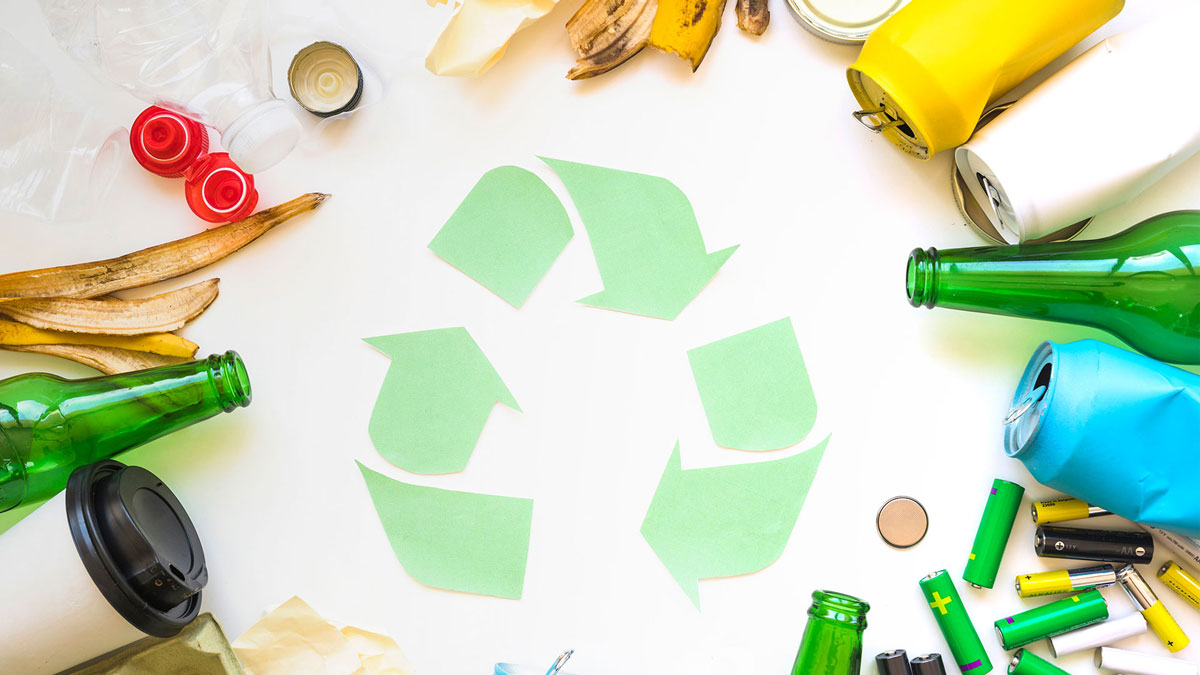
Recycling in Toronto has made great strides, as an industry, in the past decade. Even so, ‘dirty recycling’ is still very much a prominent theme at sorting facilities across the GTA. If recycling numbers are to rise to where we need them to be in the coming years, dirty recycling as a phenomenon is something that we’re going to have to acknowledge and resolve.
What is dirty recycling?
If recycling is to be processed and re-manufactured into recycled materials, it must be sorted, cleaned and void of any contaminants. So let’s say, you take your Toronto blue recycling bin, piling it beautifully with recyclables. If the materials themselves aren’t clean enough to make something from, the entire bin can be disregarded as ‘contaminated’ and is then sent to the landfill. Defining ‘dirty recycling’, it’s all in the name.
What is the goal of recycling?
We think of recycling as a means of helping the planet. The goal of the recycling industry is to make money from waste – that’s it, for better or for worse. If bales of recycling don’t sell, they’re sent to the landfill and are good as garbage even if the material itself isn’t waste.
See the 11 Top Reasons Why People Use Junk Removal Services in Toronto
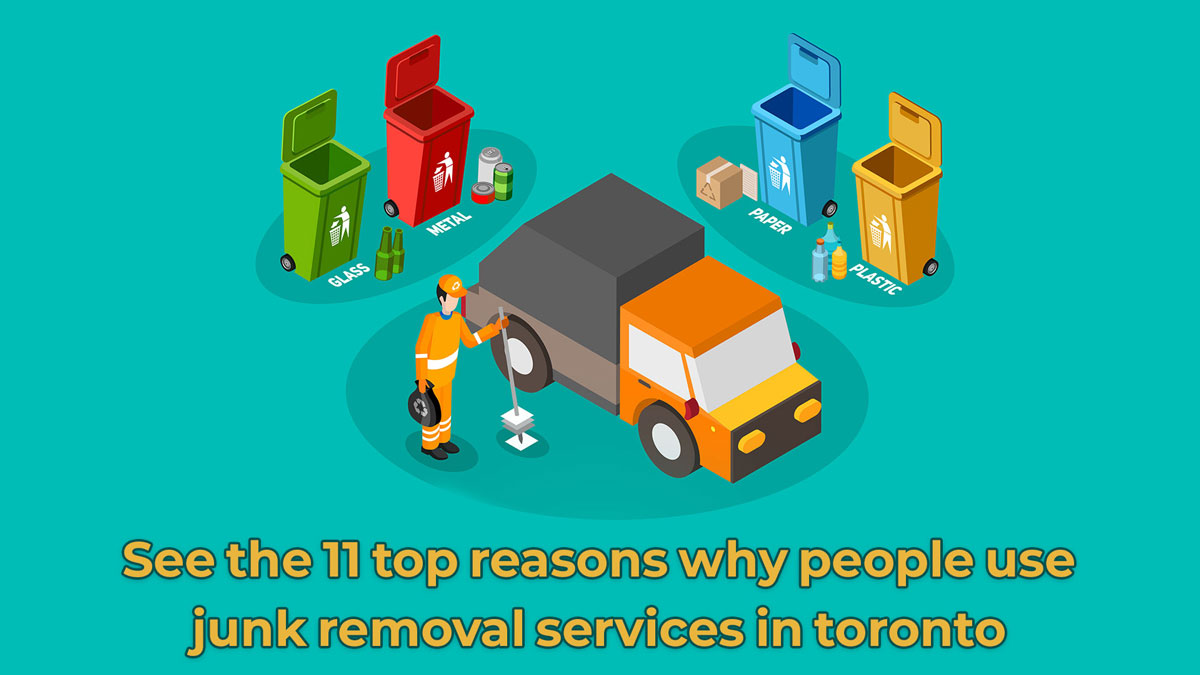
7 days a week, 365 days a year, you can find Core Mini Bins somewhere out there in Toronto providing junk removal services or a dumpster rental to someone. We help everyone from university students to seniors dispose of waste and move furniture in easy, affordable trips.
If you’ve never used junk removal services before in the GTA, you’ve probably seen them advertised almost everywhere. A variety of companies offer junk removal – some better than others. Here are the top reasons why people use junk removal services in Toronto!
1 – It’s spring cleaning time!
Every spring, we see an uptick in requests for junk removal. That’s because it’s the season of growth, renewal, and doing away with the things holding you back. Homeowners cleaning out their garages and condo owners clearing away what’s in their storage units, junk removal’s a popular option between the increasingly warmer temperatures of March through June.
2 – Homeowner renovation help
A junk removal service helps remove renovation waste or DIY construction materials no longer needed. If you’ve got a driveway or space with a lot of debris that needs to be gone, the recommendation would be to rent a dumpster. If you’re beyond that point though, a junk removal’s oftentimes at a similar cost and will work just as well at helping you move contents ranging from general demolition waste to pieces of sheds, patios, and more.
Read more: See the 11 Top Reasons Why People Use Junk Removal Services in Toronto
Why Do Construction Sites Need a Dumpster Rental – Keep it Safe and Tidy
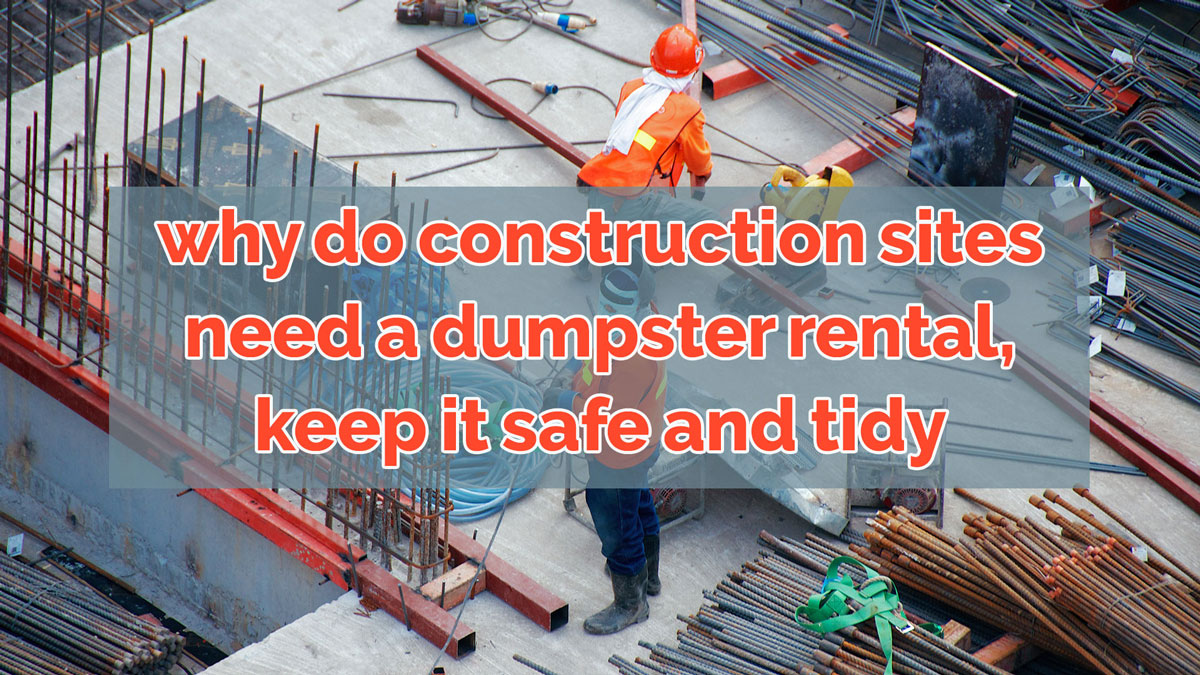
Preparing a construction site for maximum efficiency and safety involves having a waste management plan in place. Most of the time, that’s a dumpster rental or mini bin rental. Considered a necessity, a dumpster on a construction site gathers waste, keeping it from remaining on the ground, exposed and dangerous. If you aren’t yet convinced you need a dumpster rental for your construction site, here’s some food for thought.
Can I keep costs down by managing my own construction waste?
As an alternative to renting a dumpster, some construction contractors may choose to self-manage waste. This rarely proves to be fruitful, especially in terms of cost. Problems inevitably come about. Disposal and landfill costs may prove to be higher than expected, oftentimes construction sites accumulate more waste than what a project manager may initially predict, transportation arrangements can fall through, and you don’t have the support of a waste management expert there to help coordinate and lead you through these very common issues. Saving on cost may be the motivation however rather quickly, you may find costs exceed estimates.
How does a dumpster rental make a construction project easier?
A dumpster rental establishes a process by which you can collect and dispose of waste. One doesn’t have to organize waste management themselves or arrange for disposal on their own dime. When you select a dumpster rental company to partner with on your construction site, management of your waste gets so much easier. With a rental, they drop it off, pick it up, and everything’s taken care of. As a construction contractor, you get the opportunity to put your concentration towards the project – not on the waste.
Read more: Why Do Construction Sites Need a Dumpster Rental – Keep it Safe and Tidy
How Can I Do My Own Renovation DIY-Style Without Creating Waste – see here!
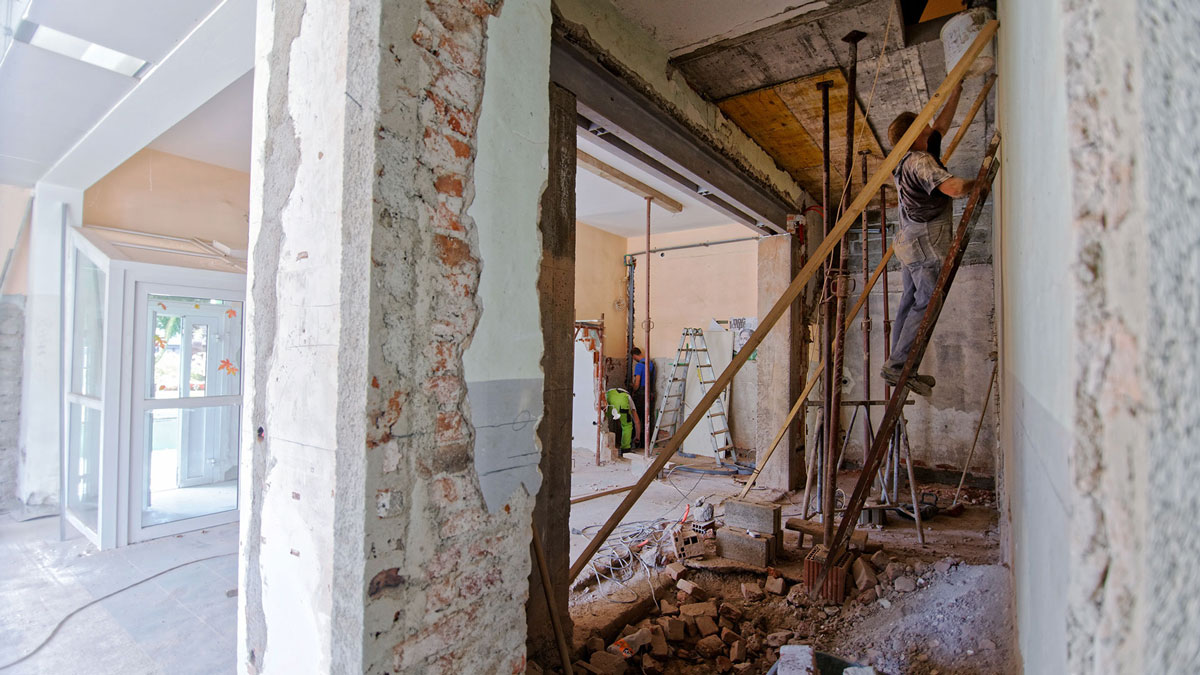
At first glance, a construction project or renovation may look tough to complete without the creation of waste. There are plenty of ways to minimize waste, control and manage it, and implement recycling initiatives that ensure any reusable material is sent to the right place.
What’s the best way to reduce renovation waste?
If you are concerned about the amount of waste your renovation will produce, turn your waste into recycling and reusables. Connect with local charity organizations that can take more completed, salvageable materials. Set yourself up with a waste disposal company who is committed to doing the right thing with what they collect. Thankfully, in and around the GTA, there’s no shortage of recycling facilities.
Do I need to call a junk removal company for a renovation?
If you’re doing a sizeable renovation and have some furniture or similarly sized items to throw away, a junk removal company is an excellent last resort. If you can’t donate or transport it yourself, a junk removal service will come, pick it up, and handle the disposal. Though it’s not required, if you have furniture to move out, this is one of the fastest ways to do so.
Read more: How Can I Do My Own Renovation DIY-Style Without Creating Waste – see here!
How to Cut Out and Reduce Plastic Waste in 2020 for Homes and Businesses
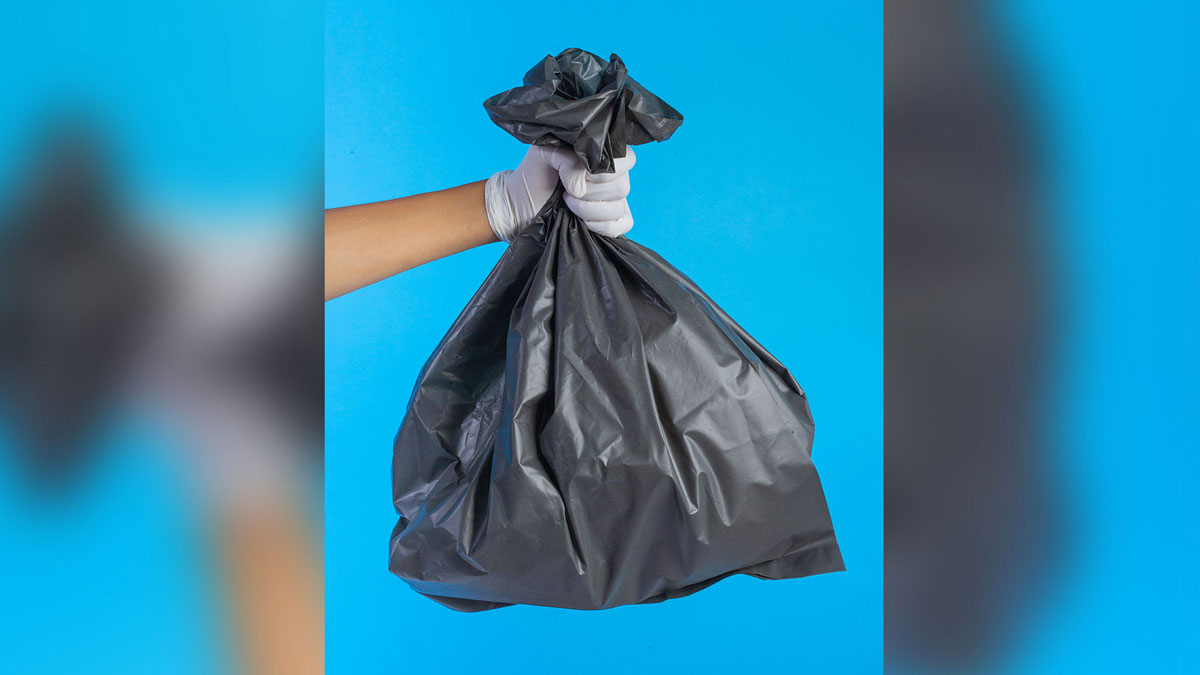
Do you want to reduce plastic consumption in your household or place of business – the opportunities to recycle plastic and buy alternatives are readily available. In 2020, for some businesses and homes, they could potentially be seeing their very first plastic-free year. Here’s some different approaches to reducing plastic waste others have taken.
Can I actually not buy plastic this year?
In all likelihood, you’re going to need to buy some new plastics at some point. Everyone uses plastics, some daily. It’s a part of living in the twenty-first century. Even the most dedicated recyclers may still encounter a decision where plastic is the answer. That said, don’t feel bad. Alternatives exist in most cases and it’s very possible you may be able to avoid buying plastics most of the time.
Why do they use plastic in my coffee cup?
When you buy a cup of coffee, you’re receiving a disposable coffee cup with a plastic lining inside. If you’re a big fan of Tim’s or Starbucks, and even a lot of independent coffee shops, disposable cups are packed with plastic. A natural alternative is to bring your own reusable to purchase coffee with. A lot of coffee shops will accept reusable non-disposable coffee mugs, filling them without hassle.
Read more: How to Cut Out and Reduce Plastic Waste in 2020 for Homes and Businesses
Do We Need Landfills in Ontario – Why They Will Always Be a Necessity
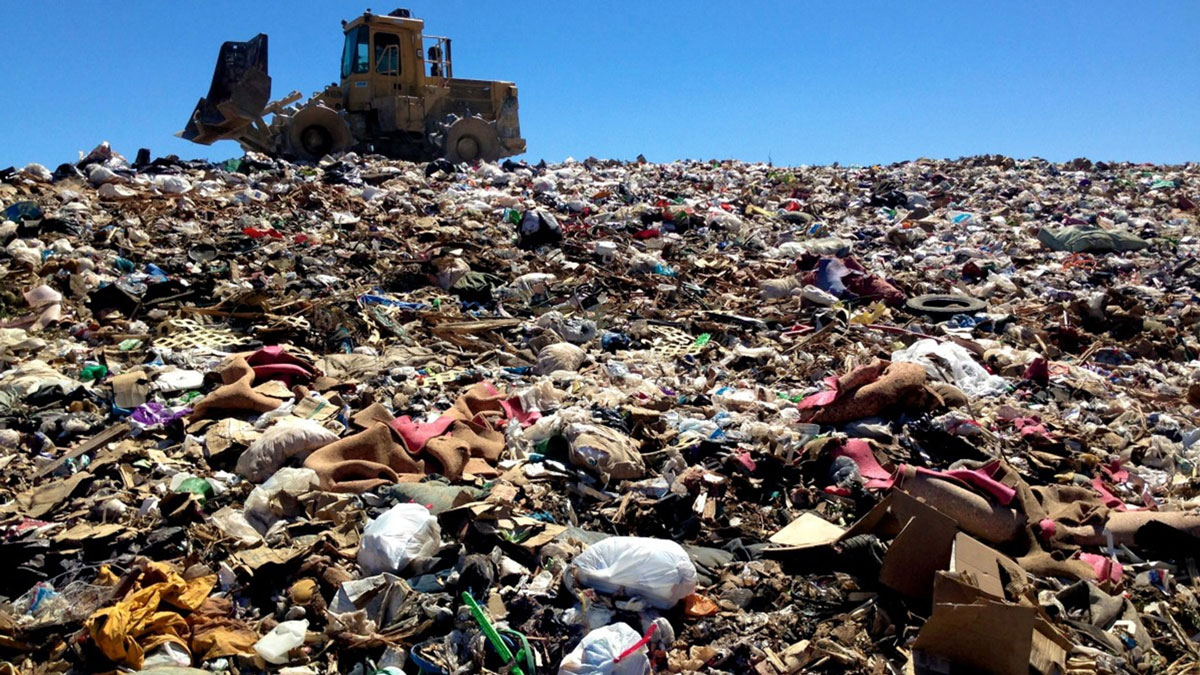
As the current waste culture is very much supporters of a recycling-first waste management approach, it’s not often landfills are spoken about in a positive manner. As stakeholders in the industry ourselves, we will be the first to tell you that landfills are and are likely to always be a necessity.
What is a landfill?
Landfills are where we put waste we cannot process and which cannot be recycled. Virtually anyone can deposit waste at a landfill. It’s not the cleanest of places but reality is that without them, we would have major troubles on our hands. Some waste just isn’t recyclable. For these items or materials, they need some place where they can be stored safely and efficiently.
What do landfills provide?
Landfills regulate waste, allowing us to allocate it in a structured environment. We dig out established areas and designate them as a ‘waste management region’. In a landfill, we can monitor our waste and ensure that it’s being properly processed. If landfills were to not exist, managing waste wouldn’t be possible. As worse as it is to see waste in our water streams and in protected areas, amounts would be increased without landfills. To ignore the importance of landfills is highly irresponsible and only encourages a disorganized system.
Read more: Do We Need Landfills in Ontario – Why They Will Always Be a Necessity
How Much Waste Will My Renovation Make – Why to Rent a Dumpster or Mini Bin
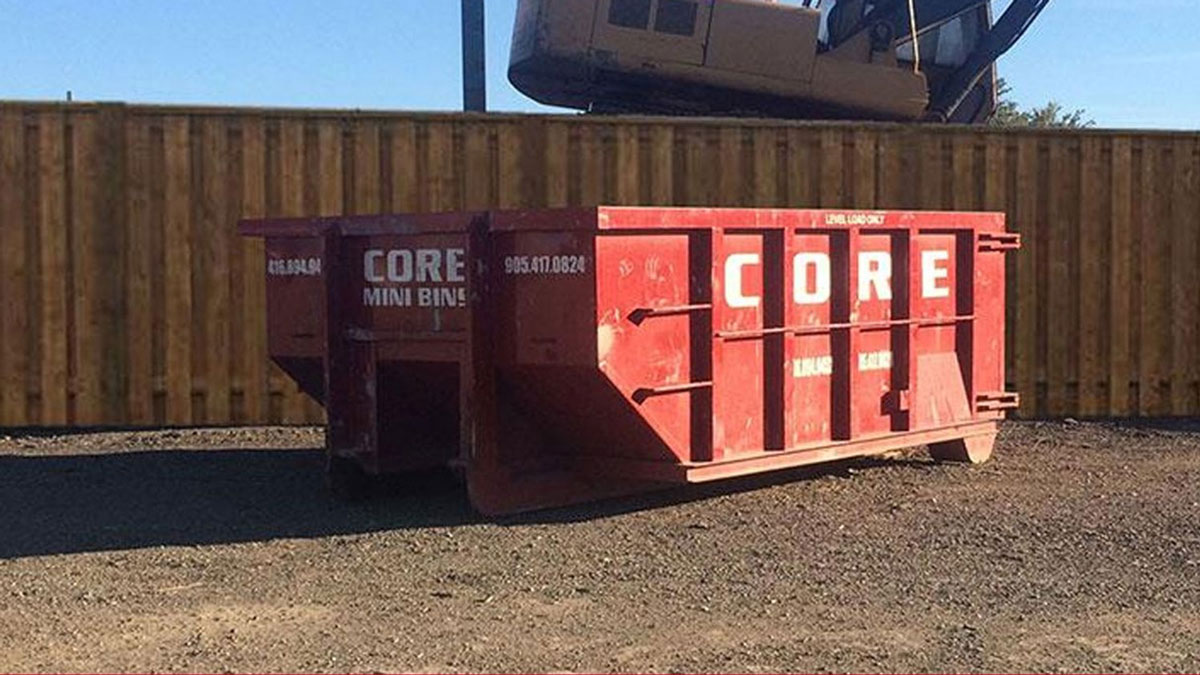
If you’ve ever watched an HGTV renovation program, you generally don’t see the big, big amounts of waste that get generated. Sure, they show a part of that but in all actuality, one’s renovation waste adds up quickly and can easily fill up a dumpster or two.
It’s notoriously very tough to eye how much construction waste you’re going to make. You don’t want to be without a safe place to put it all or struggling to find a method to transport it to the landfill.
If you’re excited to renovate the kitchen or bathroom, re-do the basement, or overhaul your landscaping, this generates a lot of waste. The best way to manage and control this waste is through a dumpster rental or mini bin rental.
A general rule for renovation waste
Although the amount of waste a renovation can make varies wildly, in general, we assume 60 pounds of waste per square foot. This means that an average sized kitchen is probably going to produce about 5 tons of waste in a renovation. The unfortunate thing is a lot of people try to manage this themselves, usually resulting in high costs, a lot of time and effort, and an environmental cost as well.
Read more: How Much Waste Will My Renovation Make – Why to Rent a Dumpster or Mini Bin
14 Simple Tips Any Toronto Business Can Do to Go Green, Recycle More, and Waste Less

Have you ever thought, “My office could be greener. I just don’t know how.” Well, here us out. 2020’s a new year. It’s the time to make something happen. If you want to make your Toronto business more eco-friendly and green, here are 14 simple ways to help you achieve that.
Upgrade, fix, reuse
You want your office looking its’ absolute best. With that comes new equipment, furniture, and appliances, and removing what’s old. Unfortunately, the waste this mentality has produced is sizeable. Is it possible to simply upgrade existing equipment, fix your furniture, or find a way to repurpose or reuse it – if not, consider making a donation to a local charity. Even if you delay having to throw something out by six months, this still makes an impact.
Appoint a waste supervisor
Every office should have a waste management and recycling supervisor appointed. This is someone who is passionate about keeping your company green and eco-friendly. This person will set short-term and long-term goals, and help research future opportunities for you to continue developing recycling initiatives in the most economical way possible.
Read more: 14 Simple Tips Any Toronto Business Can Do to Go Green, Recycle More, and Waste Less
Where to Go for a Junk Removal Service in Winter Anywhere in Toronto or the GTA
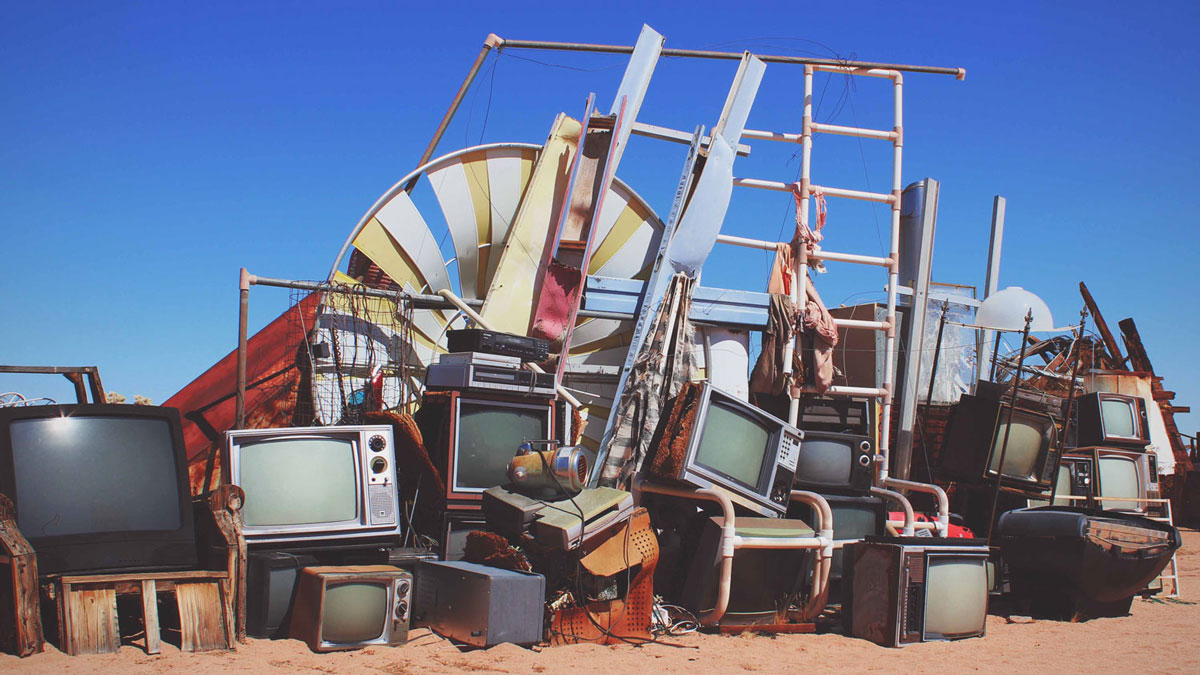
The winter weather in Canada has just begun to arrive but with the colder temperatures and snowy conditions, waste disposal suddenly gets complicated. Let’s say you have some old furniture to move, you can’t just leave it at the road if you want someone to pick it up for reuse. Junk removal services are needed to get it elsewhere and in shelter.
Though winter does complicate things a little, speaking from the perspective of a Toronto junk removal service, it’s not so bad. Just like our customers go to work, go grocery shopping, and catch up with friends and loved ones, we work through the same weather to get stuff done. Looking to get some junk removal done this winter? There are a few things you can do to assist the junk removal process. Here’s how you can do a junk removal in winter.
The advantage of hiring a junk removal service in winter
A junk removal service has equipment to get your waste gone quickly and efficiently. They generally also have relationships with recycling facilities, charity organizations, and similar resources ensuring your junk is going to all the right places. They save you the hassle of taking away all the waste yourself. All the heavy lifting, it’s done! A junk removal company makes it so easy.
Read more: Where to Go for a Junk Removal Service in Winter Anywhere in Toronto or the GTA
Debunking the Top Common Recycling Myths in Toronto
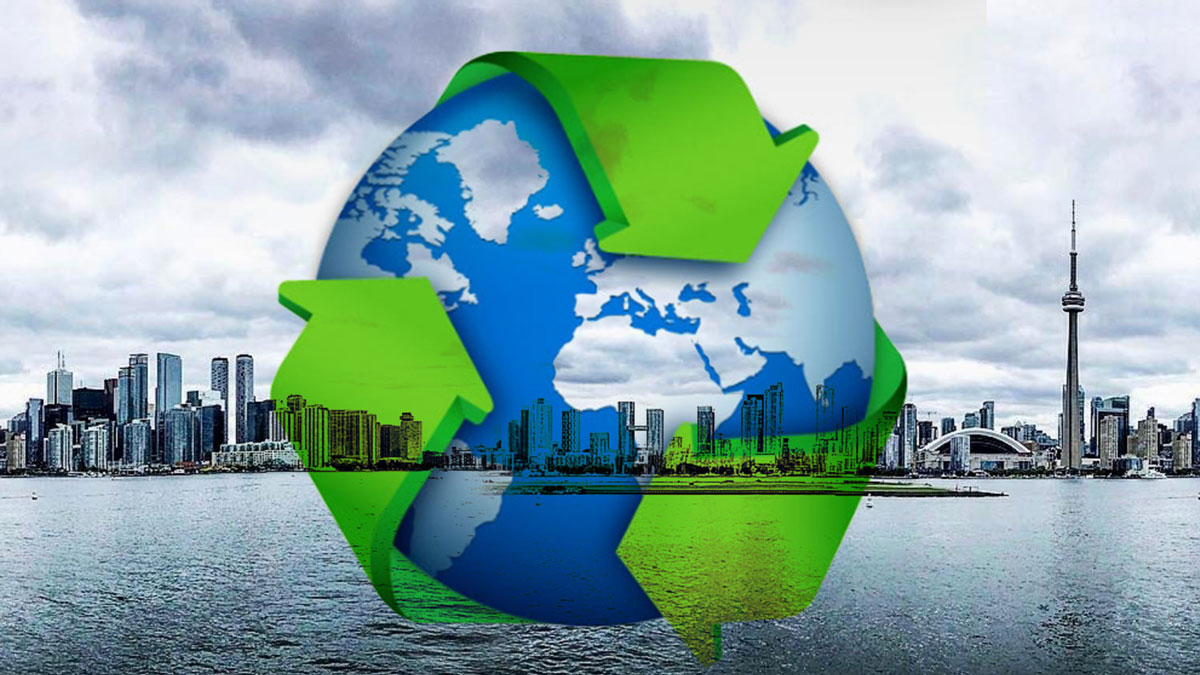
Toronto is Canada’s largest city and with that size comes challenges, one of them being waste management. Though our recycling system has come so far in the past decade, the GTA still carries a lot of myths and misconceptions about what’s recyclable and what isn’t in Toronto.
Debunking the most common of these, we hope to shine a light on how recycling’s moving forward in the GTA as an industry and as a waste management policy shared between stakeholders from all backgrounds.
Myth – Everything’s recyclable
You’d think by what Torontonians put into their recycling bins, anything and everything is recyclable. Unfortunately this isn’t quite true yet. What ends up happening is called cross-contamination. When recycling bins are contaminated with food, food by-products, or non-recyclables, this affects what can be recycled.
Myth – Biodegradable is recyclable
Just because something is biodegradable does not mean it is necessarily recyclable or an eco-friendly product. Biodegradable means that a product degrades in a natural environment. In degradation, a product can emit very toxic fumes and technically, still be considered ‘biodegradable’. Also, some biodegradables require specific conditions for them to degrade. If conditions aren’t met, a product can sit in our lakes or in our streets and take a very long time before eventually degrading.
Read more: Debunking the Top Common Recycling Myths in Toronto


